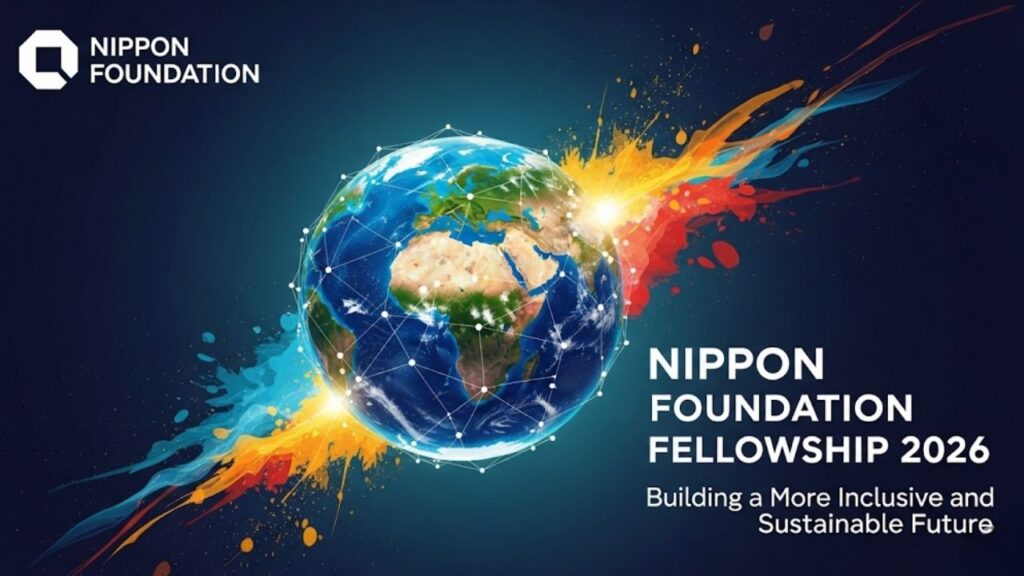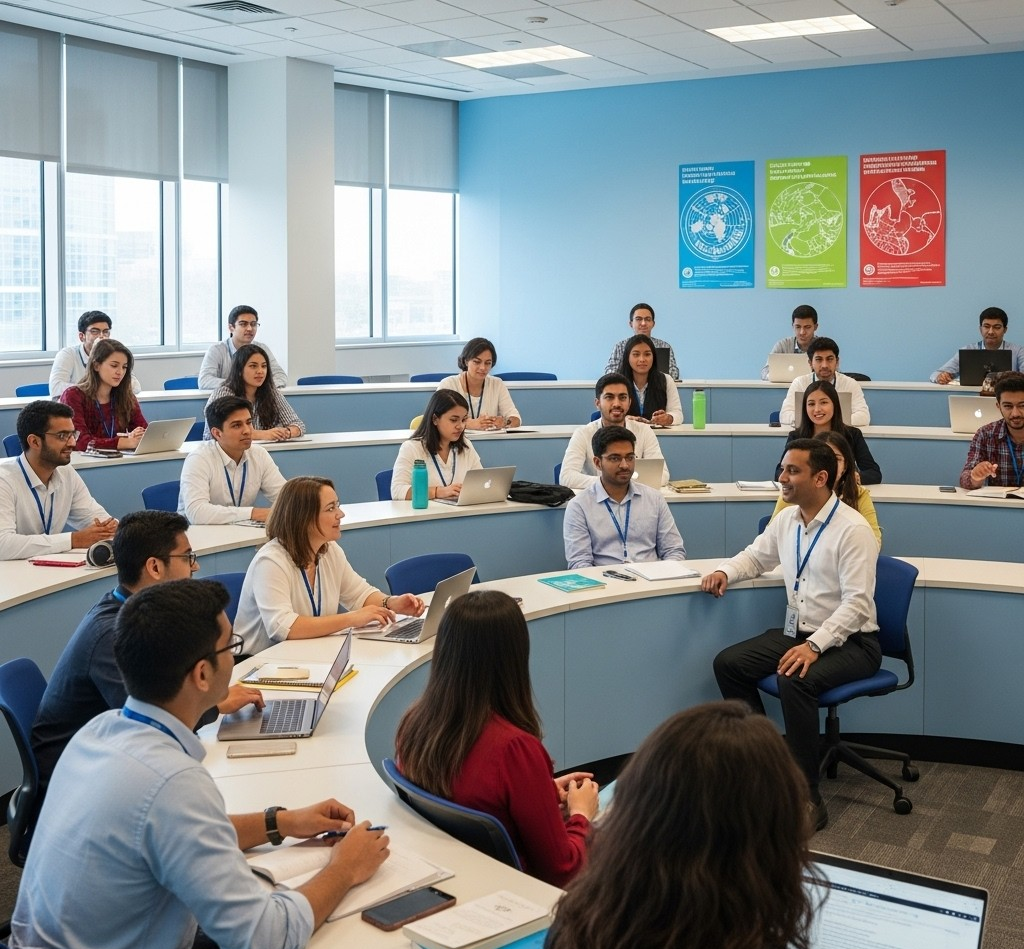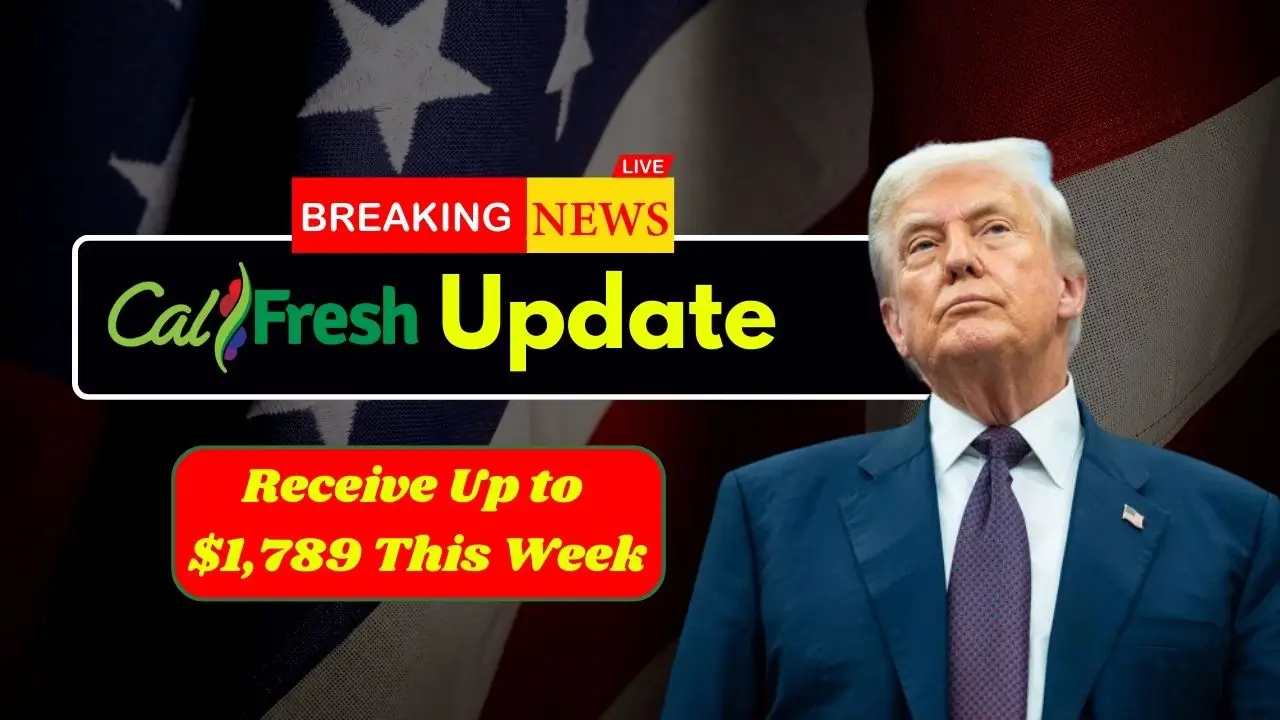The Nippon Foundation Fellowship 2026 represents a golden opportunity for dedicated ocean professionals to deepen their expertise and shape the future of marine governance. If you are passionate about the law of the sea, sustainable ocean development, and international policy, this guide is your first step toward a potentially life-changing journey. We’ll break down the entire process, from understanding the eligibility requirements to crafting a standout application, giving you the clarity and confidence to pursue this prestigious award. Let’s set sail on your application journey together.

Nippon Foundation Fellowship 2026
| Key Fact | Detail |
|---|---|
| Fellowship Focus | Advanced education and research in ocean affairs and the law of the sea. |
| Target Audience | Mid-level professionals from developing States. |
| Duration | 9 months, fully-funded. UN DOALOS |
| Structure | A two-phase program: 3 months at a partner university and 6 months at the United Nations. |
What Exactly Is the Nippon Foundation Fellowship?
The United Nations – The Nippon Foundation Fellowship is more than just a scholarship; it’s an intensive, nine-month capacity-building program designed to empower the next generation of ocean leaders. Sponsored by The Nippon Foundation and executed by the UN’s Division for Ocean Affairs and the Law of the Sea (DOALOS), its core mission is to help developing nations better manage their marine resources and participate more effectively in global ocean governance.
Fellows gain a comprehensive understanding of the legal framework that governs our oceans, primarily the United Nations Convention on the Law of the Sea (UNCLOS). This isn’t just about reading textbooks. It’s about engaging directly with the institutions and experts who work on these critical issues every day. The program aims to create a global network of professionals equipped with the knowledge and skills to tackle complex challenges like maritime security, sustainable fisheries, and the conservation of marine biodiversity.

Are You the Ideal Candidate? Unpacking the Eligibility Criteria
Before you dive into the application, it’s crucial to ensure you meet the specific requirements. The fellowship is highly competitive, and the selection committee looks for candidates who not only have a strong background but also demonstrate immense potential to make a difference back in their home countries.
Here are the core eligibility requirements, based on the official guidelines:
- Age: You should generally be between 25 and 40 years of age.
- Education: You must have successfully completed a first university degree. A higher degree in a relevant field (like law, political science, or marine science) is a significant advantage.
- Professional Experience: You need to demonstrate a direct and substantial involvement in ocean-related affairs. This could be through your work in a government ministry, a research institution, or a non-governmental organization.
- Career Goals: You must be able to show how this fellowship will directly benefit your country’s capacity in ocean affairs. Your career plans should align with the fellowship’s objectives.
- Government Nomination: This is a key step. Your application must be supported by a nomination from a governmental body or an equivalent authority.
A Special Note on the Government Nomination
The requirement for a government nomination can sometimes feel daunting, but it’s a fundamental part of the process. It signifies that your country supports your candidacy and sees your potential to contribute upon your return.
Start this process early. Identify the correct government ministry or agency to approach—this could be the Ministry of Foreign Affairs, Ministry of Environment, or your national maritime authority. Prepare a clear, concise summary of the fellowship and why you are a strong candidate to present to them.
A Journey in Two Parts: The Fellowship Structure
The fellowship is ingeniously designed to provide both deep academic knowledge and practical, hands-on experience. The nine-month program is split into two distinct and complementary phases.
Phase 1: Academic Immersion (Approx. 3 months)
The journey begins with an intensive academic research and training program at one of the world’s leading marine institutes. These host institutions are renowned for their expertise in ocean law and policy. This phase provides you with the foundational theoretical knowledge and research skills you’ll need for the rest of the fellowship. You’ll be attending lectures, participating in seminars, and working closely with top academics in the field.
Phase 2: UN Headquarters Experience (Approx. 6 months)
Following your academic immersion, you will move to New York City for the second phase at the United Nations Headquarters. Here, you will be placed with the Division for Ocean Affairs and the Law of the Sea (DOALOS). This is where theory meets practice. You’ll develop your research project, attend high-level meetings, and gain unparalleled insight into how the UN system works. This is your chance to learn directly from the diplomats, lawyers, and policy experts at the very heart of global ocean governance.
Crafting a Winning Application for the UN-Nippon Fellowship
Your application is your only chance to make a first impression. It needs to be professional, compelling, and authentic. In my experience advising aspiring fellows, successful applicants are those who tell a coherent and passionate story about their connection to the oceans.
Here’s a breakdown of the key components and how to make them shine.
The Personal Statement & Research Proposal: Your North Star
This is arguably the most important part of your application. It’s your opportunity to connect your past experiences with your future ambitions.
- Be Specific: Don’t just say you are “passionate about the ocean.” Provide concrete examples. What specific problem in your country’s maritime domain drives you? Is it illegal fishing, marine pollution, or the need for better coastal zone management?
- Connect to UNCLOS: Clearly articulate how your work relates to the United Nations Convention on the Law of the Sea.
- Outline Your Research: Propose a research topic that is both relevant to your country’s needs and feasible to complete within the fellowship’s timeframe. Show that you’ve thought deeply about a specific issue you want to explore.
- Show, Don’t Just Tell: Instead of saying “I have strong leadership skills,” describe a situation where you led a project or initiative that had a positive impact.
Securing Strong Letters of Recommendation
Choose your referees wisely. They should be people who know you well in a professional or academic capacity and can speak to your skills, character, and potential.
- Ask Early: Give your referees at least 4-6 weeks of notice.
- Provide Information: Equip them with your CV, your personal statement, and information about the fellowship. The more they know, the better their letter will be.
- Choose the Right People: A glowing letter from a direct supervisor who can attest to your work on a specific marine project is often more valuable than a generic letter from a very high-ranking official who barely knows you.

What Does “Fully Funded” Mean?
The term “fully funded” is a major draw, and for good reason. The ocean affairs fellowship provides comprehensive financial support, allowing you to focus entirely on your studies and research. According to the official program information, this typically includes:
- A monthly stipend to cover living expenses (accommodation, food, etc.).
- Round-trip airfare from your home country to the host institution and then to New York.
- A book allowance for the academic phase.
- Comprehensive medical insurance for the duration of the fellowship.
Your Gateway to Advanced Research: Lisbon ICS-ULisboa Advanced Studies Fellowship 2025
Your Gateway to a PhD in India: The TWAS-SN Bose Postgraduate Fellowship 2025
FAQ
Q1:Is there a strict age limit for the fellowship?
While the program guidelines suggest an age range of 25-40, exceptional candidates outside this range may be considered if they demonstrate significant experience and potential.
Q2:Can I apply without being nominated by my governmen?
No, the nomination from a national government agency or equivalent authority is a mandatory requirement for the application to be considered complete.
Q3:What kind of research projects are successful?
Successful research proposals are typically focused on a specific, pressing ocean issue relevant to the applicant’s home country. The topic should be well-defined and achievable within the nine-month fellowship period.






